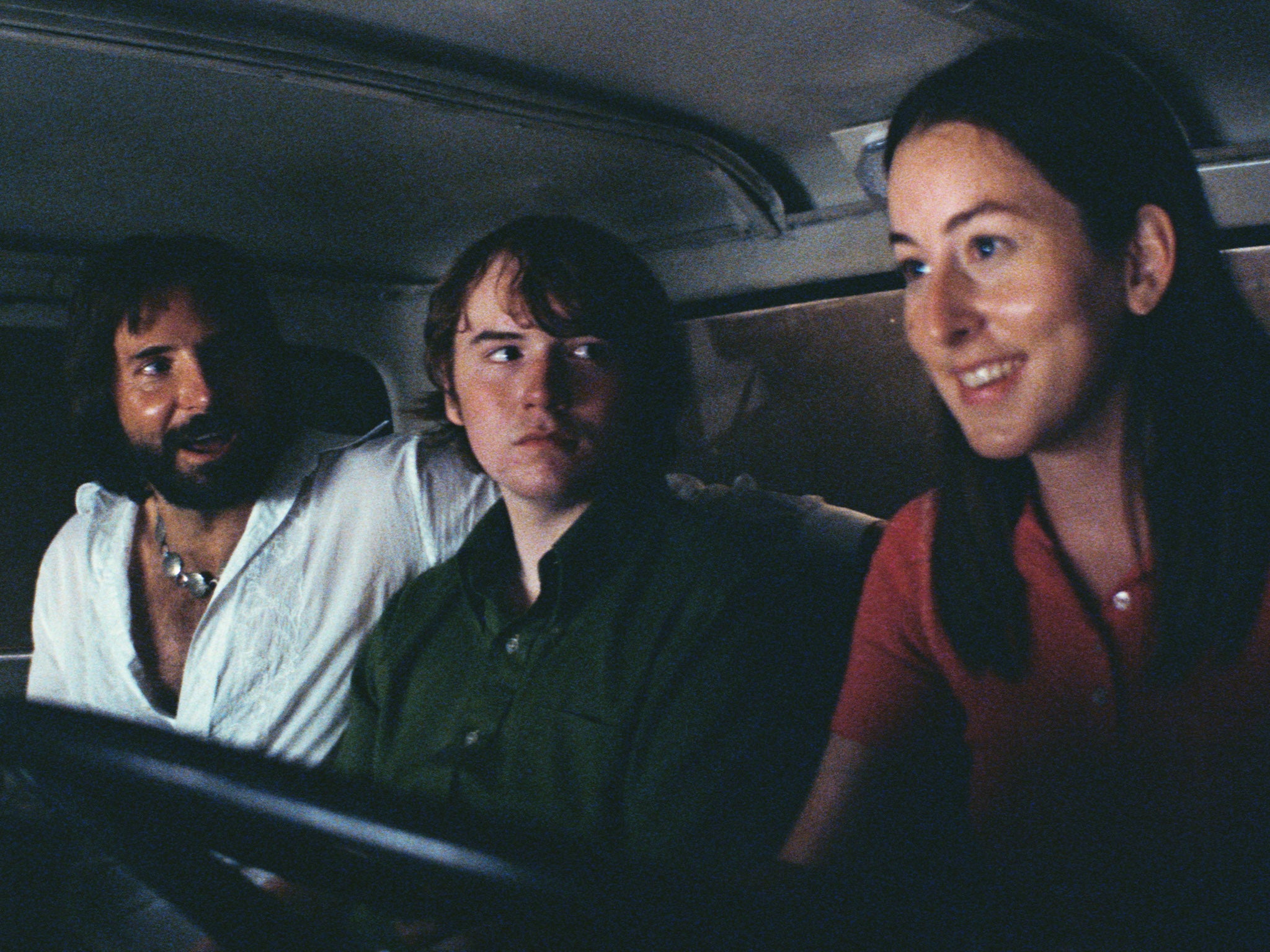Why Paul Thomas Anderson’s Licorice Pizza is an anti-love love story
Paul Thomas Anderson’s new film is not a salacious story about a power-imbalanced relationship, or even romantic love, at all, writes Katie Driscoll. It’s about the exhilaration of losing and then finding yourself

Licorice Pizza is many things: a sun-soaked paean to 1970s LA; an earnest exploration of first love; a joyfully juvenile tribute to screwball cinema; a silly and voyeuristic behind-the-scenes slice of Tinseltown. But most of all, Paul Thomas Anderson’s latest film is a journey of the self, masquerading as a coming-of-age romance.
We open upon a meet-cute of the most unlikely kind: she’s the photographer’s assistant at his high school’s picture day. Gary Valentine (Cooper Hoffman, son of the late great Phillip Seymour Hoffman) is a precocious 15-year-old former child actor in puppyish thrall to Alana Kane (Alana Haim, of the band Haim), a Barbara Stanwyck-esque firecracker. Alana is brimming with the eye-rolling resistance of a 25-year-old made the object of male teen lust, but she never becomes a one-note fantasy. Her gaze is central.
Despite the age difference, the swirling chemistry between them is evident. With Gary, Alana is luminous, putting him and his child-actor charm in their place with a self-possession that is not on display when she’s around powerful, older men. They bounce off of one another like pinballs in a machine.
With Alana, Gary is endearingly confident, bringing her into his worlds, whether a Hollywood venture as his chaperone, a waterbed sales girl at his store, or helping her to embrace her dreams of becoming an actor. They’re both at odds with themselves; she’s a case of arrested development, he talks like he’s Frank Sinatra but can’t manifest anything stronger than an order of two cokes at the bar.
Many viewers on social media platforms have recently derided the film’s age gap (Gary is a minor) as “problematic”, some even going as far as to cite it as “predatory” and in danger of “glamourising paedophilia”. But the will-they-won’t-they dynamic doesn’t hang over the film, nor is it even the point. Instead, the film uses an offbeat relationship as a way to explore what Anderson describes as the “sticky stuff” of growing up – the parts of us we dispose of as we age, like youthful optimism or the terrible pleasure of a crush. Within this, Anderson slyly uses Alana’s unwillingness to grow up to interrogate the pressures that women in US society faced in the Seventies.
By 1973, the sexual revolution and the Women’s Liberation Movement were already in full swing. Roe v Wade had recently legalised abortion, making strides for women’s bodily autonomy. But outside of the arena of domesticity, women’s futures in the workplace were still a looming question mark. More women were college-educated than any other period in the US, yet only 13.3 per cent of those with a BA degree had gone into the labour force. The Marriage Bar, which prohibited married women from working, was still in place up until 1973. The Pregnancy Discrimination Act, which finally stopped women being unfairly fired for getting pregnant, didn’t come into force until 1978. This is the environment in which Alana would have been brought up.
She is not unaware of the odds stacked against her: “He’s an atheist and an actor and he’s famous... he was going to take me out of here!” she wails at her father after a Shabbat date with Gary’s heartthrob co-star Lance (Skyler Gisondo) goes awry. In opposition to Gary is the world of adult men, characterised by sleaze and ego-massaging, whether it’s Jon Peters (Bradley Cooper) and his slimy come-ons or Jack Holden (Sean Penn) and his obsession with reliving past glories. Even the encouragement of mayoral candidate Joel Wachs (Benny Safdie) ends in disappointment, when he turns out to be using Alana as a cover-up to camouflage his real relationship.

In addition to Alana’s desire to remain free, suspended in time with “Gary and his 15-year-old friends”, there is the rumbling anxiety that permeates the film’s period setting. The hippie period of Free Love was a fire that had already long burnt out, giving way to Nixon’s era of cynicism; Gary’s corny brandishing of a “peace and love, baby” V sign is met with a sternly crude admonishment. Then there’s the unease around the oil crisis, something that affects even the untouchables, the elite of Hollywood. It’s no wonder that Alana is queasy about a future that is already unstable. At least Gary offers optimism, and a place of security.
Look closer and Licorice Pizza is not a salacious story about a power-imbalanced relationship, or even romantic love, at all. It’s about the exhilaration of losing and then finding yourself, the story of a girl-woman reclaiming herself during a period that did not allow women to put themselves first. As Alana says to Gary earlier on in the film, “You’re not my director”; this story belongs to her.
Join our commenting forum
Join thought-provoking conversations, follow other Independent readers and see their replies
Comments


Bookmark popover
Removed from bookmarks